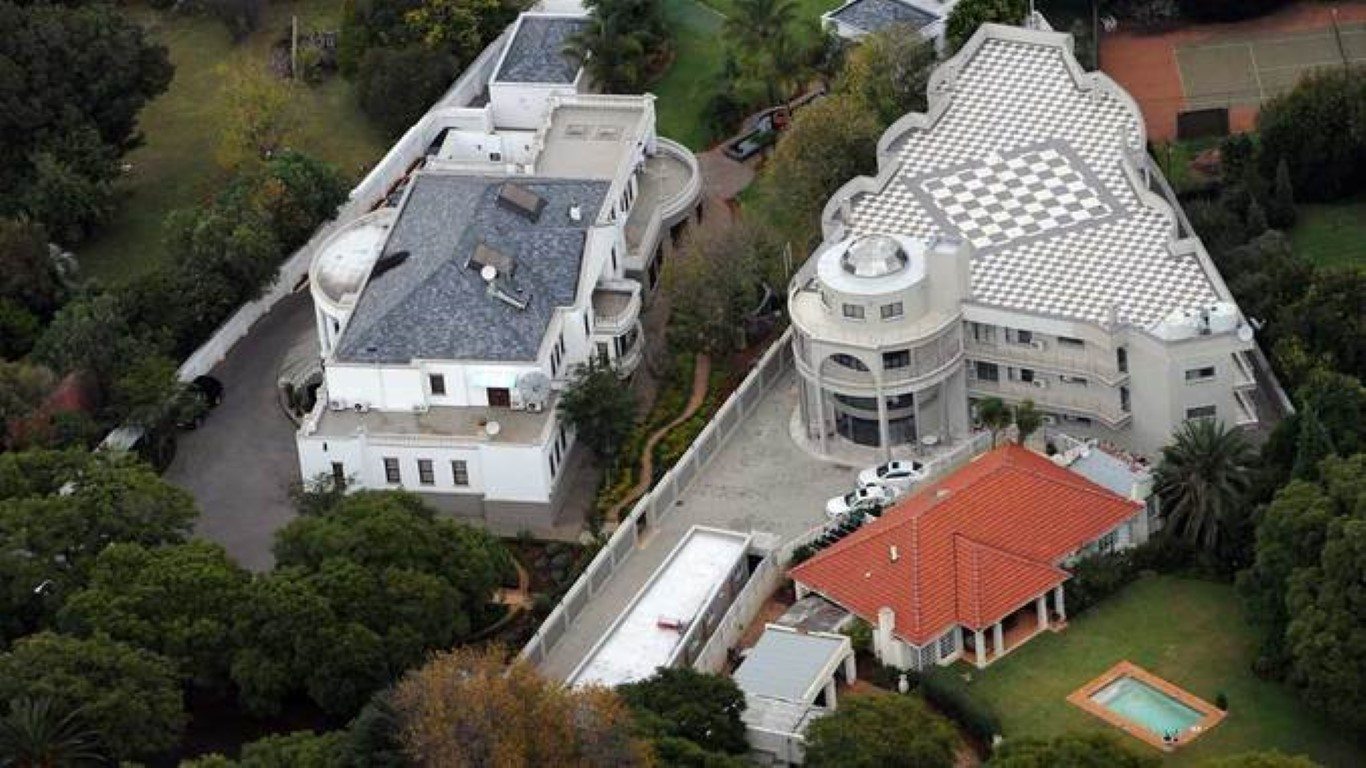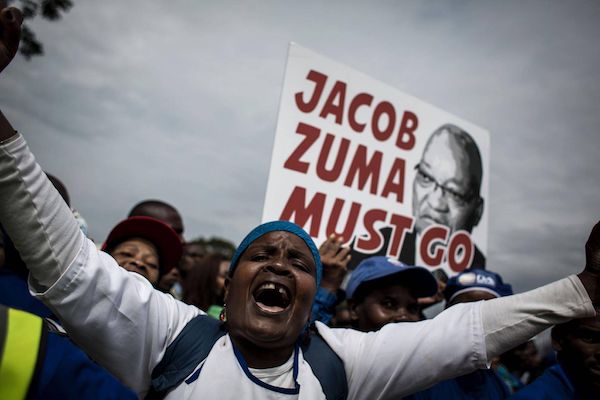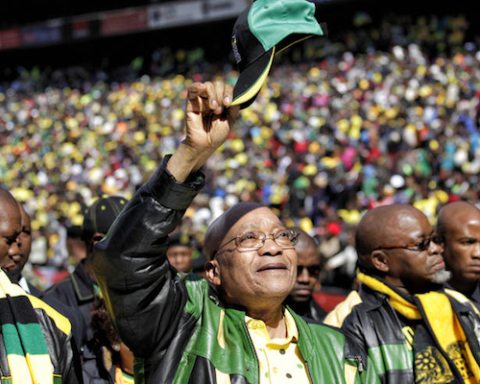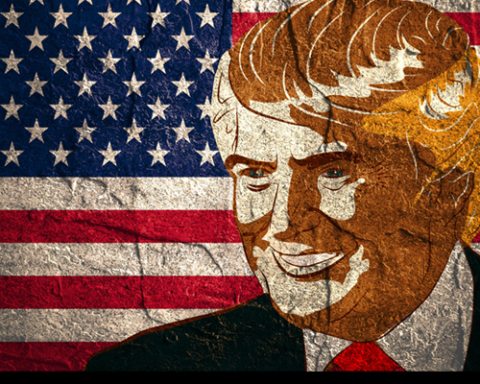Years of scandal have finally caught up with South African President Jacob Zuma; on Feb. 15, his own African National Congress Party (ANC) threatened to join with the opposition in a vote of no confidence. While Mr. Zuma announced his resignation on national television the night before, he had also struck a note of defiance, even menace, earlier that day.
“We are being plunged into a crisis that I feel some of my comrades will regret,” he said in a state television interview earlier in the day. “What is it that I’ve done?”
Jacob Zuma may have to answer his own question in the coming months.
As Mr. Zuma faces 783 counts of fraud, corruption and racketeering after a South African high court revived the charges in 2016, new evidence may soon be used to convict the former president. Within hours of his party announcing the no confidence vote against him, police investigators raided mansions belonging to the Gupta brothers, who are close friends of Zuma and business partners of his son.

This case is a high profile instance of South Africa’s phenomena of “state capture,” a more extensive version of corruption in which government policies are shaped to benefit private interests. The case linking Mr. Zuma to state capture has been proceeding in slow motion for years.
The ANC has also been trying to cut the dead weight of Jacob Zuma as his name becomes more and more synonymous with scandal. Last year, the ANC began to sever ties with the former president after it chose Deputy President Cyril Ramaphosa to lead the party in the country’s upcoming presidential elections. As deputy president, Mr. Ramaphosa will also be serving as president for the remainder of Zuma’s term while he campaigns for next year’s elections.
No matter the outcome, the depth of the hole that Mr. Zuma has left in South Africa is staggering. Since Jacob Zuma took office in 2009, economic growth has been stagnant, and at times even negative. During those same years, however, many other African economies were seeing historic rates of growth.
Mr. Zuma’s mismanagement has also undercut the mechanisms to get out of the economic hole he has created. Almost 40% of unemployed South Africans have never held a job, the country’s education system is one of the worst of any developed nation on the planet, and South Africa continues to remain one of the most unequal economies on the planet.
And what has been economic pain is showing signs of turning into chaos. After two of its citizens were kidnapped, this week the British government issued a travel advisory for South Africa. And the security forces are struggling to cope with criminals who are willing to stage direct attacks on police stations. The U.S. also increased the threat level for travelers to South Africa on February 13th.

The country’s politics are also in a tight corner. In spite of his victory, Mr. Ramaphosa faces an ANC riven by factionalism. Despite taking over as leader of the party in December, he only gained that leadership by a margin of 21 votes, with the rest of the votes going to Zuma’s ex-wife Nkosazana Dlamini-Zuma. In order to maintain unity within the ANC, President Ramaphosa will need to implement “radical economic transformation;” ironically, that was a cornerstone of Mr. Zuma’s populist rhetoric for years.
“This conference has resolved that the expropriation of land without compensation should be among the mechanisms available to government to give effect to land reform and redistribution,” Mr. Ramaphosa said in his maiden speech upon assuming leadership of the party.
The prospect of property seizure without financial compensation is not the best news for international investors right now, but President Ramaphosa’s promise to fight corruption has had one promising effect; South Africa’s currency has risen to a three year high against the USD since he took control of the ANC two months ago. Ramaphosa has reorganized the presidential cabinet, beginning his crusade on corruption. Ramaphosa has also made good on his promises to make significant land reform, and on Tuesday, his motion to change the South African constitution to allow land expropriation without compensation was passed by Parliament.
LIMA CHARLIE NEWS
Lima Charlie provides global news, insight & analysis by military veterans and service members Worldwide.
For up-to-date news, please follow us on twitter at @LimaCharlieNews


![Image This Week in Business Intelligence [Lima Charlie News]](https://limacharlienews.com/wp-content/uploads/2018/03/This-Week-in-Business-Intelligence-Lima-Charlie-Business-Intel-Report-480x384.png)


![Africa’s Elections | In Malawi, food, land, corruption dominate [Lima Charlie News]](https://limacharlienews.com/wp-content/uploads/2019/06/Malawi-election-Food-land-corruption-480x384.jpg)
![Image The Rwandan Jewel - Peacekeepers, Conflict Minerals and Lots of Foreign Aid [Lima Charlie World]](https://limacharlienews.com/wp-content/uploads/2019/03/Rwanda-Jewel-480x384.jpg)
![Image [Women's Day Warriors - Africa's queens, rebels and freedom fighters][Lima Charlie News]](https://limacharlienews.com/wp-content/uploads/2019/03/Womens-Day-Warriors-Lima-Charlie-News-480x384.jpg)
![Image Zimbabwe’s Election - Is there a path ahead? [Lima Charlie News]](https://limacharlienews.com/wp-content/uploads/2018/09/Zimbabwe’s-Election-Is-there-a-path-ahead-Lima-Charlie-News-480x384.png)
![[Silver lining for China in Zimbabwe’s violent elections][Lima Charlie News]](https://limacharlienews.com/wp-content/uploads/2018/08/Screen-Shot-2018-08-02-at-12.51.35-PM-480x384.png)
![Image This Week in Business Intelligence [Lima Charlie News]](https://limacharlienews.com/wp-content/uploads/2018/03/This-Week-in-Business-Intelligence-Lima-Charlie-Business-Intel-Report-150x100.png)
